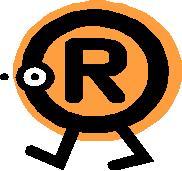"Use in Commerce" Not Required for U.S. TM Opposition
 In First Niagara Insurance Brokers, Inc. v. First Niagara Financial Group, Inc., (January 9, 2007) the Federal Circuit reiterated that a foreign opposer can present its opposition by showing mere use of its mark in the United States, and not the more stringent standard of "use in commerce" that is lawfully regulated by Congress.
In First Niagara Insurance Brokers, Inc. v. First Niagara Financial Group, Inc., (January 9, 2007) the Federal Circuit reiterated that a foreign opposer can present its opposition by showing mere use of its mark in the United States, and not the more stringent standard of "use in commerce" that is lawfully regulated by Congress.The statutory ground relied upon by FN-Canada in opposing FN-US's registration is Section 2(d) of the Lanham Act, which provides in relevant part:
[No trademark by which the goods of the applicant may be distinguished from the goods of others shall be refused registration on the principal register on account of its nature unless it] [c]onsists of or comprises a mark which so resembles a mark registered in the Patent and Trademark Office, or a mark or trade name previously used in the United States by another and not abandoned, as to be likely, when used on or in connection with the goods of the applicant, to cause confusion, or to cause mistake, or to deceive[.]The opposer, FN-Canada, was an insurance broker that sells insurance policies issued by various underwriting companies to its customers in exchange for a commission. FN-Canada operates entirely out of Niagara Falls and Niagara-on-the-Lake, in Ontario, Canada, and has no physical presence (e.g., offices, employees, assets, etc.) in the United States. Moreover, FN-Canada is not licensed to act as an insurance broker in any country other than Canada. Nevertheless, FN-Canada's business does have connections to the United States. For example, FN-Canada sells insurance policies issued by United States-based underwriting companies. FN-Canada also sells, through insurance brokers in this country, policies to United States citizens having Canadian property. In other words, if an American owns property in Canada and needs insurance for that property, a domestic broker will contact FN-Canada, who will then provide an appropriate policy issued by one of FN-Canada's underwriters. The domestic broker and FN-Canada share the commission generated by the transaction.
FN-Canada provides insurance to Canadians, as well, to facilitate their travel to the United States. Specifically, FN-Canada sells auto insurance policies with features that allow Canadians to legally operate a motor vehicle in this country (i.e., features that are compliant with a given state's motor vehicle insurance laws); liability insurance to Canadian businesses who bring tourists here; commercial liability policies to Canadian businesses doing business in the United States; and policy riders covering goods being shipped across the border by Canadian companies. When a claim arises under one othese policies from an incident occurring in the United States, FN-Canada facilitates the processing of that claim with the issuing underwriter. Another FN-Canada customer is the Niagara Falls Bridge Commission ("the NFBC"), which is a joint U.S.-Canada venture that operates bridges between the two countries. The NFBC leases some of its property to businesses, and FN-Canada has in the past sold commercial liability insurance to the NFBC. FN-Canada has also sold insurance to the Indian Defense League of America (which has a Canadian address) in connection with an annual march that group leads over an international NFBC bridge.
FN-Canada did not own any registered United States marks; however, in its advertising (including advertising that "spills over" into the United States) and correspondence (including correspondence to customers and other business contacts in the United States) FN-Canada regularly uses several unregistered marks: "First Niagara," "First Niagara Insurance Brokers."
Inder these facts, it was "clear [to the Federal Circuit] that the Board erred in dismissing FN-Canada's oppositions. The record unquestionably reveals more than ample use of FN-Canada's marks in the United States to satisfy the use requirements of Section 2(d). Therefore, [they were] compelled to reverse the decision below.

0 Comments:
Post a Comment
<< Home
© 2004-2007 William F. Heinze